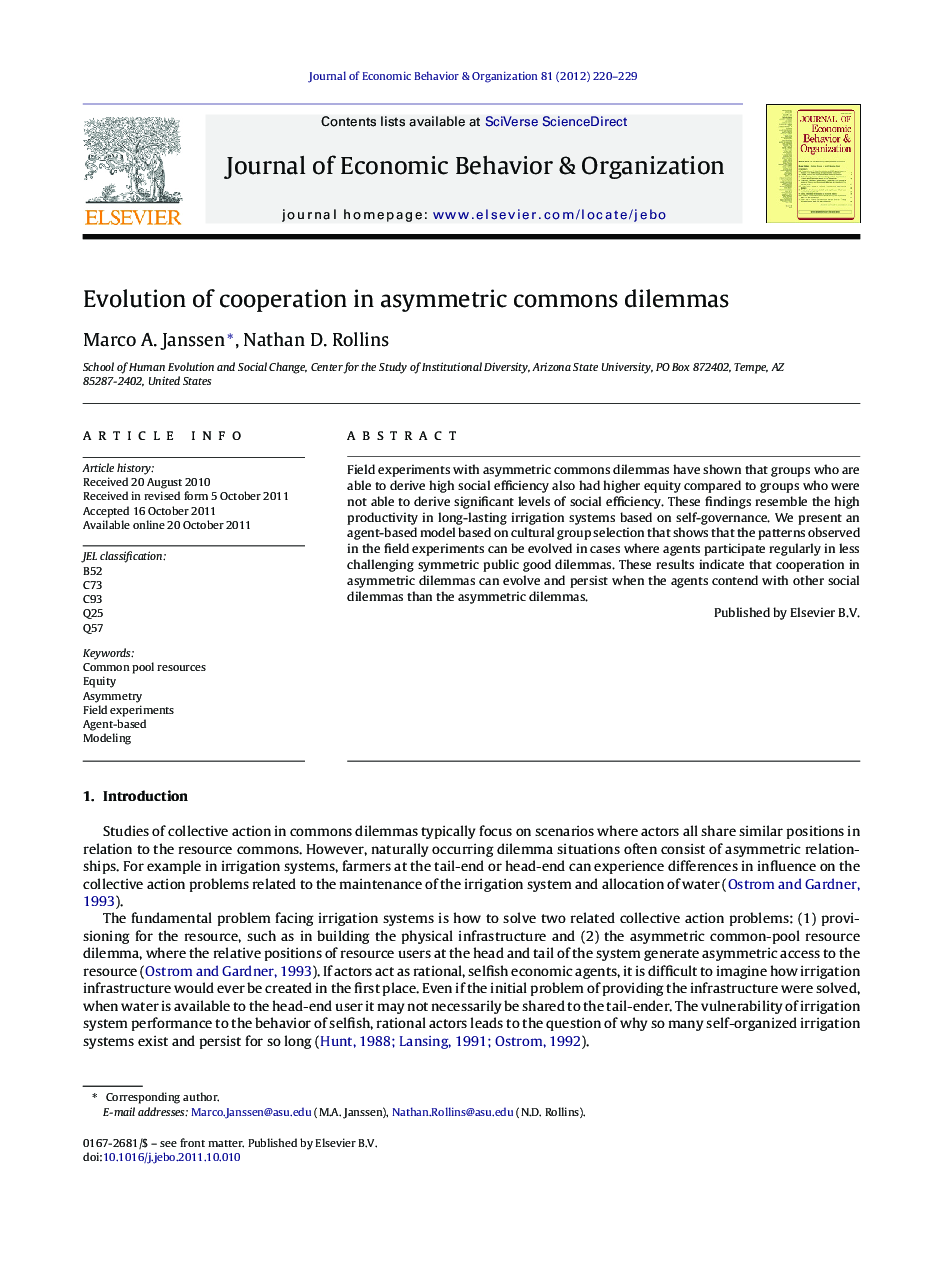| Article ID | Journal | Published Year | Pages | File Type |
|---|---|---|---|---|
| 883815 | Journal of Economic Behavior & Organization | 2012 | 10 Pages |
Field experiments with asymmetric commons dilemmas have shown that groups who are able to derive high social efficiency also had higher equity compared to groups who were not able to derive significant levels of social efficiency. These findings resemble the high productivity in long-lasting irrigation systems based on self-governance. We present an agent-based model based on cultural group selection that shows that the patterns observed in the field experiments can be evolved in cases where agents participate regularly in less challenging symmetric public good dilemmas. These results indicate that cooperation in asymmetric dilemmas can evolve and persist when the agents contend with other social dilemmas than the asymmetric dilemmas.
► Field experiments with asymmetric dilemmas show trade-off between social efficiency and equity. ► Agent-based model used to understand evolution of agents who behave as observed in experiments. ► Model based on cultural group selection. ► Observed patterns evolving if agents combine symmetric and asymmetric dilemmas. ► Cooperation in asymmetric dilemmas when other-regarding preferences evolved in symmetric dilemmas.
